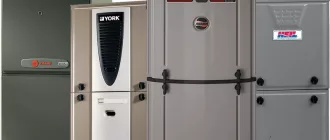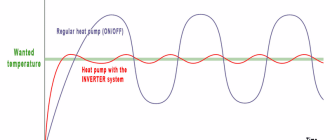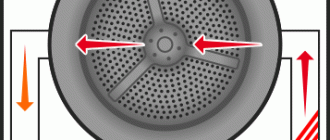Exploring Two-Stage Systems: Benefits of Multi-Stage ACs and Heat Pumps
When it comes to cooling and heating your home, efficiency is key. Traditional air conditioning and heat pump systems have long relied on a single-stage operation, which can sometimes result in inconsistent comfort and higher energy consumption. However, with the advent of multi-stage technology, homeowners can now enjoy a more efficient and cost-saving solution.
Multi-stage ACs and heat pumps are innovative systems that offer a range of benefits over their single-stage counterparts. These systems utilize two-stage operation, meaning they have two levels of cooling or heating power, allowing them to adjust the output based on the current needs of the home. This flexibility helps to maintain a more consistent temperature throughout the living space, resulting in improved comfort.
One of the primary advantages of two-stage systems is their ability to provide more precise temperature control. With the option to operate at a lower stage, the system can run longer and at a lower capacity, effectively removing humidity and creating a more comfortable indoor environment. Additionally, the lower stage operation also helps to reduce energy consumption, as the system doesn’t need to operate at full power all the time.
In addition to improved comfort and energy efficiency, two-stage systems also tend to have longer lifespans compared to single-stage systems. This is because they don’t need to work as hard or run at full capacity for as long, resulting in less wear and tear on the components. This can ultimately save homeowners money on maintenance and replacement costs in the long run.
Overall, exploring the benefits of multi-stage ACs and heat pumps is a worthwhile endeavor for homeowners looking to improve the efficiency, comfort, and longevity of their cooling and heating systems. With their two-stage operation, these systems offer precise temperature control, reduced energy consumption, and extended lifespans. By investing in a multi-stage system, homeowners can enjoy a more comfortable living environment while also saving money on energy bills and maintenance.
Advantages of Multi-Stage ACs and Heat Pumps
When exploring the benefits of two-stage systems, it’s important to consider both ACs and heat pumps. Multi-stage ACs and heat pumps offer numerous advantages that can greatly enhance the comfort and efficiency of your home.
One of the main benefits of multi-stage ACs and heat pumps is their ability to better regulate temperature. Unlike traditional single-stage systems that only have one level of operation, multi-stage systems have two or more stages. This means they can adjust the intensity at which they operate to better match the needs of your home. In warmer weather, for example, a multi-stage AC or heat pump can operate at a higher stage to quickly cool your home. But on milder days, it can operate at a lower stage, providing a more consistent and gentle cooling or heating effect.
Another advantage of multi-stage ACs and heat pumps is their improved energy efficiency. By operating at different stages, these systems can avoid the frequent on/off cycling that is common with single-stage systems. This frequent cycling can lead to energy waste and increased wear and tear on the system. Multi-stage systems, on the other hand, can run at lower stages for longer periods of time, allowing them to maintain a more steady and efficient temperature in your home.
The ability to run at lower stages also makes multi-stage ACs and heat pumps quieter than their single-stage counterparts. By running at a lower stage, these systems operate at a lower noise level, reducing the overall noise pollution in your home. This can be particularly beneficial if you have sensitive sleepers in your household or live in a quiet neighborhood.
Lastly, multi-stage ACs and heat pumps provide better humidity control. By running at a lower stage, these systems can remove more moisture from the air, helping to reduce indoor humidity. This can lead to a more comfortable and healthier indoor environment, as excess humidity can promote the growth of mold and mildew.
| Better temperature regulation |
| Improved energy efficiency |
| Quieter operation |
| Better humidity control |
Energy Efficiency
When it comes to exploring the benefits of two-stage and multi-stage ACs and heat pumps, one of the key advantages is their energy efficiency. These systems are designed to provide precise and consistent heating and cooling, while using less energy compared to single-stage systems.
Two-stage systems have two levels of operation: low stage and high stage. During milder weather conditions, the system can operate in its low stage, which consumes less energy. This allows for better control of indoor temperature and ensures that the system doesn’t run at full capacity when it’s not necessary.
Multi-stage systems, on the other hand, have multiple levels of operation. They can adjust the heating or cooling output based on the specific needs of the space. By operating at different stages, these systems can save energy by not running at full capacity all the time.
In addition to providing energy savings, two-stage and multi-stage systems also contribute to improved comfort. With their precise temperature control and ability to maintain consistent indoor conditions, these systems can create a more comfortable living environment for homeowners.
Overall, the energy efficiency of two-stage and multi-stage ACs and heat pumps makes them an attractive choice for homeowners looking to reduce their energy consumption and save on utility bills. By investing in these advanced systems, homeowners can enjoy the benefits of improved comfort and significant energy savings.
Cost Savings
When it comes to exploring the benefits of two-stage systems for ACs and heat pumps, cost savings are a significant advantage. Two-stage systems are designed to operate at different levels, depending on the cooling or heating needs of your home.
During mild weather, two-stage systems can run on the lower setting, which uses less energy and results in lower utility bills. This feature allows for more efficient and cost-effective operation, as the system doesn’t have to work at full capacity when it’s not necessary.
Additionally, the ability to adjust the output of the system based on the temperature requirements can help prolong the lifespan of the equipment. By avoiding constant cycling on and off, two-stage systems can reduce wear and tear, resulting in fewer repairs and replacements.
In the long run, the cost savings provided by two-stage systems can help offset the initial investment. While these systems may have a higher upfront cost compared to single-stage systems, the energy savings and reduced maintenance expenses make them a wise investment for homeowners looking to save money in the long term.
In conclusion, two-stage systems offer significant cost savings for homeowners. By operating at different levels and adjusting to the specific needs of your home, these systems can help reduce energy consumption, lower utility bills, and extend the lifespan of the equipment. Investing in a two-stage AC or heat pump is a smart choice for those looking to enjoy long-term cost savings.
Enhanced Comfort
One of the major advantages of multi-stage ACs and heat pumps is the enhanced comfort they provide. Traditional single-stage systems have only two options: full power or no power. This can lead to temperature fluctuations and uneven heating or cooling in different rooms of the house.
However, with multi-stage and two-stage systems, you have more control over the amount of heating or cooling provided. These systems have multiple stages or speeds, allowing them to adjust their output based on the specific needs of a space.
When the temperature is mildly warm or cool, a multi-stage system can operate at a lower speed, providing gentle and consistent heating or cooling. This reduces the temperature swings and eliminates the discomfort caused by sudden blasts of hot or cold air.
Furthermore, multi-stage systems can run at a lower speed for longer periods of time, allowing them to effectively dehumidify the air. This helps to maintain a comfortable indoor environment by removing excess moisture, reducing the potential for mold growth, and improving air quality.
In addition, multi-stage systems have advanced control features that allow homeowners to program and customize the temperature settings based on their preferences and daily schedules. This level of control ensures that every room in the house is kept at the desired temperature, providing enhanced comfort and improved overall comfort.
Overall, exploring the benefits of multi-stage ACs and heat pumps reveals that these systems offer enhanced comfort by providing more precise heating and cooling, reducing temperature fluctuations, and allowing for customized temperature control.
Longer Lifespan
When it comes to exploring the benefits of multi-stage ACs and heat pumps, one of the most significant advantages is their longer lifespan compared to single-stage systems. These two-stage systems are designed to operate at lower speeds for longer periods, which reduces wear and tear on the components and extends their overall lifespan.
By running at a lower capacity most of the time, a two-stage system doesn’t have to work as hard to reach the desired temperature, resulting in less stress on the system. This not only leads to fewer repairs and replacements but also reduces the risk of breakdowns and malfunctions, providing homeowners with peace of mind.
With a longer lifespan, multi-stage ACs and heat pumps offer homeowners a better return on their investment. They can enjoy the benefits of these systems for an extended period before considering a replacement, making them a cost-effective choice in the long run.
Additionally, the extended lifespan of two-stage systems is also beneficial for the environment. By reducing the need for frequent replacements, these systems contribute to reducing waste and conserving resources. Homeowners can feel good about their choice to invest in a system that not only saves them money but also has a positive impact on the planet.
In conclusion, the longer lifespan is a significant advantage of multi-stage ACs and heat pumps. By operating at lower speeds and reducing wear and tear on components, these systems offer homeowners peace of mind, cost-effectiveness, and environmental benefits.
Quieter Operation
One of the benefits of exploring two-stage systems for ACs and heat pumps is their quieter operation. Traditional single-stage systems tend to run at maximum capacity all the time, which can create a lot of noise and disruption in your home. Two-stage systems, on the other hand, have the ability to run at a lower speed most of the time, resulting in reduced noise levels.
The two-stage operation allows the system to adjust its speed and capacity based on the current cooling or heating demands. This means that when the weather is mild, the system can operate at a lower speed, providing a more consistent and quieter indoor environment.
In addition to a quieter operation, two-stage systems also offer other benefits. They can provide more precise temperature control, better energy efficiency, and improved humidity control. With their ability to adjust capacity and speed, two-stage systems can effectively maintain a comfortable indoor climate while minimizing energy consumption and reducing overall utility costs.
Overall, if you’re looking for a system that not only provides efficient cooling and heating but also operates quietly, two-stage systems are a great option to consider. Their advanced technology delivers a more enjoyable indoor environment without sacrificing performance or energy efficiency.
Improved Air Quality
Multi-stage ACs and heat pumps have the ability to improve air quality in your home or office. These systems use advanced filtration technology to remove unwanted particles from the air, such as dust, pollen, pet dander, and mold spores. The two-stage systems have an additional advantage in this regard.
Two-stage systems are designed to run at a slower speed, allowing for longer run times. This extended operation time helps the air conditioner or heat pump to remove more humidity from the air. By reducing humidity levels, these systems can prevent the growth of mold and mildew, which are common allergens and can lead to respiratory issues.
The improved air quality provided by multi-stage ACs and heat pumps can benefit everyone in your home or office. For people with allergies or asthma, these systems can make a significant difference in their comfort and overall well-being.
| – Improved air quality |
| – Advanced filtration technology removes unwanted particles |
| – Two-stage systems remove more humidity, preventing mold and mildew growth |
| – Beneficial for people with allergies or asthma |
Zoning Capabilities
One of the major benefits of two-stage systems in ACs and heat pumps is their zoning capabilities. Zoning refers to the ability to control the temperature in different areas or zones of your home independently. With traditional single-stage systems, you have limited control over the temperature throughout your home. However, with a multi-stage system, you can divide your home into different zones and adjust the temperature individually for each zone.
This level of control allows you to customize the temperature settings based on your preferences and the specific needs of each zone. For example, you can set cooler temperatures in the bedrooms at night for better sleep, while keeping the living areas slightly warmer during the day. This not only enhances comfort but also helps to save energy and reduce utility costs.
Exploring the zoning capabilities of two-stage ACs and heat pumps can lead to greater efficiency and comfort in your home. You can target specific areas for heating or cooling, avoiding unnecessary usage in areas that are not in use. This can be particularly useful in larger homes or homes with multiple floors, where there may be varying temperature needs in different areas.
In addition, zoning capabilities can also help to address temperature imbalances in your home. Certain areas may receive more sunlight or have higher heat loads, leading to uneven temperature distribution. With a multi-stage system, you can adjust the temperature independently in these areas to maintain a consistent and comfortable environment throughout your home.
In summary, the zoning capabilities of two-stage systems offer several benefits, including customized temperature control, energy savings, and improved comfort. By dividing your home into different zones and adjusting the temperature individually for each zone, you can create a more efficient and comfortable living environment.
Better Humidity Control
One of the benefits of multi-stage ACs and heat pumps is their ability to provide better humidity control compared to traditional two-stage systems.
With multi-stage systems, the equipment can operate at lower speeds for longer periods of time, allowing them to remove more moisture from the air. This results in a more comfortable indoor environment, as excessive humidity can cause discomfort, promote the growth of mold and mildew, and worsen respiratory issues.
By exploring multi-stage options, homeowners can enjoy improved humidity control and create a healthier living space. The longer and slower cooling cycles provided by multi-stage systems help to extract moisture from the air, reducing humidity levels and improving indoor air quality.
Additionally, multi-stage systems offer the flexibility to adjust cooling and dehumidification levels based on the specific needs and preferences of the homeowner. This level of control allows for better comfort and energy efficiency, as the system can adapt to changing weather conditions and provide the appropriate cooling and dehumidification levels.
Overall, the better humidity control provided by multi-stage ACs and heat pumps is a significant advantage for homeowners, allowing them to create a more comfortable and healthy indoor environment.
Quick Temperature Adjustment
One of the major benefits of two-stage and multi-stage heat pumps and AC systems is their ability to quickly adjust the temperature in your home. These systems use advanced technology to provide precise and efficient heating and cooling.
With traditional single-stage systems, the temperature adjustment can be slow and uneven. It takes time for the system to reach the desired temperature, and once it does, it often overshoots and then has to cycle back down. This can result in temperature fluctuations and discomfort.
Two-stage and multi-stage systems, on the other hand, offer a more precise and consistent temperature adjustment. These systems have multiple speed settings that allow them to run at a lower capacity for a longer period of time. This gradual approach ensures a smoother and more even temperature adjustment.
By exploring the benefits of two-stage and multi-stage systems, homeowners can enjoy quick and efficient temperature control. These systems are able to respond to changes in temperature more rapidly, providing a comfortable environment in a shorter amount of time.
Whether it’s heating or cooling, two-stage and multi-stage systems offer superior and more precise temperature adjustment. This not only improves comfort but also helps to reduce energy consumption and lower utility bills.
Reduced Wear and Tear
When exploring the benefits of multi-stage ACs and heat pumps, one advantage that stands out is the reduced wear and tear on the system. Compared to traditional single-stage systems, multi-stage systems, such as two-stage pumps or ACS, are designed to operate at variable speeds.
This means that the system can adjust its output according to the current heating or cooling needs of the environment. By not constantly running at full capacity, multi-stage systems experience less stress and strain on their components, resulting in reduced wear and tear.
The reduced wear and tear not only extends the lifespan of the system but also improves its overall performance and efficiency. With fewer breakdowns and repairs, homeowners can enjoy a more reliable and durable HVAC system that requires less maintenance.
Furthermore, the reduced wear and tear on multi-stage systems also leads to energy savings. By operating at lower speeds or capacities, these systems consume less electricity, resulting in lower energy bills. This makes two-stage pumps and ACS not only environmentally friendly but also cost-effective.
Overall, the reduced wear and tear is a significant advantage of multi-stage ACs and heat pumps. By operating at variable speeds, these systems minimize stress on their components, improve performance, and result in energy savings for homeowners.
Environmentally Friendly
When it comes to choosing heating and cooling systems, the impact on the environment is an important factor to consider. Multi-stage ACs and heat pumps offer significant benefits in terms of energy efficiency and reducing carbon emissions compared to traditional single-stage systems.
Multi-stage systems, such as two-stage ACs and heat pumps, are designed to operate at different speeds, allowing them to adjust the heating or cooling output based on the needs of the space. This means that they can deliver the required temperature more efficiently, resulting in less energy consumption.
By exploring the benefits of multi-stage systems, it is clear that they are environmentally friendly choices. They provide optimal comfort while minimizing energy waste and greenhouse gas emissions. These systems not only help to reduce our carbon footprint but also contribute to a healthier and more sustainable planet for future generations.
| Increased energy efficiency |
| Lower energy consumption |
| Reduced carbon emissions |
| Improved comfort control |
| Longer lifespan of equipment |
Lower Carbon Footprint
Exploring the benefits of multi-stage ACs and heat pumps not only leads us to improved comfort and efficiency but also to a reduced environmental impact. Two-stage systems are designed to operate at a lower capacity when the demand for cooling or heating is less. This means that they consume less energy and produce fewer greenhouse gas emissions, resulting in a lower carbon footprint.
By utilizing multi-stage technology, these systems can match the output level to the specific needs of the space, which not only saves money on energy bills but also reduces the reliance on fossil fuels. With a lower carbon footprint, homeowners can enjoy the peace of mind knowing that their HVAC system is contributing to a healthier planet.
Additionally, the Energy Star certification is often awarded to two-stage systems, further highlighting their energy-saving capabilities and commitment to sustainability. Investing in a multi-stage AC or heat pump is not only beneficial for homeowners but also for the environment as a whole.
Flexibility in Operation
Exploring the benefits of multi-stage ACs and heat pumps reveals that these systems offer a high level of flexibility in operation. Unlike traditional single-stage systems, multi-stage systems, such as two-stage systems, have the ability to operate at different capacities depending on the heating or cooling needs of a space.
This flexibility allows for more precise and efficient temperature control. For example, during milder weather conditions, a multi-stage system can operate at a lower capacity, which results in energy savings. On the other hand, during extreme weather conditions, the system can ramp up to a higher capacity to provide more cooling or heating power.
The ability to adjust the operating capacity of a multi-stage system also leads to improved comfort. Instead of the sudden on/off cycles that are typical of single-stage systems, multi-stage systems can run at lower speeds for longer periods of time. This allows for a more even distribution of heating or cooling throughout a space, eliminating hot or cold spots and creating a more comfortable environment.
In addition, the flexibility of multi-stage systems extends to their compatibility with various indoor units. Whether it’s air handlers, fan coils, or ductless mini-split units, these systems can be easily integrated with different types of indoor units to meet specific installation requirements.
In summary, the flexibility in operation offered by multi-stage ACs and heat pumps, particularly two-stage systems, provides benefits such as energy savings, improved comfort, and compatibility with different indoor units. These advantages make multi-stage systems a smart choice for both residential and commercial applications.
Improved Home Resale Value
When it comes to selling a home, buyers are always looking for added benefits and features that set a property apart from the rest. In this competitive real estate market, having multi-stage ACs and heat pumps can be a significant advantage.
Multi-stage systems, including two-stage ACs and heat pumps, offer a high level of energy efficiency and comfort. These systems have the ability to adjust their performance based on the specific needs of the home, providing precise temperature control and reducing energy waste.
Exploring the benefits of multi-stage systems can be a selling point for potential buyers. By highlighting the advantages of these systems, such as improved comfort, energy savings, and reduced utility bills, homeowners can increase the desirability and value of their property.
Buyers are becoming more knowledgeable about the benefits of multi-stage ACs and heat pumps, and they are willing to pay a premium for homes that have these advanced systems installed. This can result in a higher resale value for homeowners who have invested in upgrading their HVAC systems.
Additionally, having a multi-stage system installed in your home can attract a wider pool of potential buyers. Many people are looking for homes that offer energy-efficient features to reduce their environmental impact and save on utility costs. By having a two-stage system, homeowners can attract buyers who prioritize sustainability and energy efficiency.
In conclusion, the benefits of multi-stage ACs and heat pumps extend beyond comfort and energy savings. These advanced systems can also enhance a home’s resale value and appeal to a wider range of potential buyers. By investing in a multi-stage system, homeowners can enjoy the advantages of improved comfort and increased property value.
Easy Integration with Smart Home Systems
One of the many benefits of multi-stage ACs and heat pumps is their easy integration with smart home systems. With the advancements in technology, homeowners are now exploring smart home systems to make their lives easier and more convenient.
A multi-stage AC or heat pump can be easily connected to a smart home system, allowing homeowners to control and monitor their HVAC system through their smartphones or other smart devices. This integration provides homeowners with the flexibility to adjust the temperature, set schedules, and receive notifications about their HVAC system, all from the palm of their hand.
By integrating a multi-stage AC or heat pump with a smart home system, homeowners can optimize their energy usage and save on their utility bills. With the ability to control the HVAC system remotely, homeowners can adjust the temperature based on their specific needs and preferences, ensuring maximum comfort while minimizing energy waste.
In addition, the integration with smart home systems allows for advanced features such as geofencing. With geofencing, the HVAC system can automatically adjust the temperature when the homeowner leaves or enters a certain radius around their home. This feature ensures that the HVAC system is not running unnecessarily, saving energy and reducing costs.
Overall, the easy integration of multi-stage ACs and heat pumps with smart home systems offers homeowners a convenient and energy-efficient solution for managing their HVAC system. With the ability to control and monitor the system remotely, homeowners can enjoy optimal comfort while minimizing energy waste.
Q&A:
What are multi-stage ACs and heat pumps?
Multi-stage ACs and heat pumps are HVAC systems that have the ability to operate at multiple stages or levels of cooling or heating capacity. This means that instead of just simply turning on and off to maintain a desired temperature, these systems can adjust their output to match the exact cooling or heating needs of a space.
How do multi-stage ACs and heat pumps benefit homeowners?
Multi-stage ACs and heat pumps offer several benefits to homeowners. Firstly, they provide more precise temperature control, allowing for more consistent comfort throughout the home. Secondly, they operate at lower speeds for longer periods of time, resulting in quieter operation and reduced on/off cycling. Lastly, they are more energy-efficient, as they can run at lower capacities when the full cooling or heating power is not needed.
What is the difference between single-stage and two-stage systems?
The main difference between single-stage and two-stage systems is the number of cooling or heating capacities they can operate at. Single-stage systems have only one capacity level, which is typically the maximum capacity. On the other hand, two-stage systems can operate at two capacities – a lower capacity for milder temperature conditions and a higher capacity for more extreme temperature conditions.
Are multi-stage ACs and heat pumps more expensive than single-stage systems?
Multi-stage ACs and heat pumps do tend to have a higher upfront cost compared to single-stage systems. However, the long-term energy savings and improved comfort they provide can often outweigh the initial investment. Additionally, many homeowners find the added benefits of multi-stage systems worth the extra cost.
Can existing single-stage systems be upgraded to multi-stage systems?
In some cases, existing single-stage systems can be upgraded to multi-stage systems. However, it is not a simple swap-out of the equipment. Upgrading to a multi-stage system may require additional modifications to the ductwork and electrical system in order to accommodate the new technology. It is best to consult with a licensed HVAC professional to determine if an upgrade is possible and what the feasibility and cost would be.
What are the advantages of multi-stage air conditioning systems?
Multi-stage air conditioning systems offer several advantages over single-stage systems. They provide better temperature control, improved energy efficiency, and enhanced comfort. These systems operate at different speeds, allowing them to adjust the cooling capacity based on the current conditions. This results in more stable temperature levels and prevents frequent on-off cycling, which could lead to excessive energy consumption and wear on the system components.






